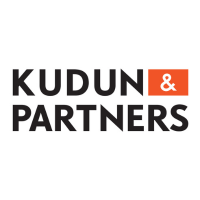
General counsel, Mekong | PwC Thailand







Sahachai Wibuloutai
General counsel, Mekong | PwC Thailand
What are the most significant cases, transactions or projects that you have recently been involved in?
In February 2023, I invited a group of leading GCs and corporate counsels to establish the Thai Corporate Counsel Association (THAI-CCA) as the nation’s first formal corporate counsel network. The primary purposes are to develop and promote knowledge, practical experience, legal innovation, best practices, career and professional development, legal industry trends, and legal profession development through education, networking, and community initiatives.
According to our initial operating plan as a non-profit professional organization, the THAI-CCA’s missions will be categorized into three pillars:
Firstly, the Academy: to upskill the capabilities of in-house lawyers by organizing educational, thought leadership, and professional development seminars;
Secondly, the Network: to bring all in-house lawyers based in Thailand together and connect them with a wider network of in-house lawyers from across ASEAN, and to promote friendly and supportive relationships both at personal and organizational levels; and
Thirdly, the Community: to promote professional quality and advance the highest ethical standards governing the practice of law in a corporate setting, to share career opportunities and develop the next generation of in-house lawyers, and to build a collaborative in-house legal community.
The establishment of the THAI-CCA has been positively received by our legal community, with staunch support from leading law firms as sponsors and knowledge partners, namely Chandler MHM, Herbert Smith Freehills, Kudun & Partners, and Tilleke & Gibbins. We also appreciate the warm welcome by corporate counsel alliances in the region, including the Singapore Corporate Counsel Association and the Association of Corporate Counsel, who will help guide us through the journey of community formalisation and participation in regional and global corporate counsel alliances.
Our objective for the immediate future is to bring all GCs and corporate counsel based in Thailand together and make the Thai-CCA a “community of solvers”. The THAI-CCA will not only be a voice of our in-house legal profession but also an ear to actively listen to our fellow corporate counsel to discuss important problems we are facing and solve those problems together.
What technological advancements do you feel will impact the role of in-house legal teams in the future the most? Which have you found most useful in your legal team?
The rise of generative artificial intelligence and large language models has the potential to completely revolutionise how we, as lawyers, do legal work. If the AI could review, summarise, draft, and analyse contracts in a matter of seconds, it would unleash productivity for legal teams which has never been seen before. In the near term, I see the importance of matter management (structured way of instruction intake, triaging of matters to working on matters to completion), contract lifecycle management (the end-to-end lifecycle of contracts from request, to drafting, then negotiation, before signing, and post execution obligation tracking) and knowledge management (how we as in-house lawyers create, store, share, and use knowledge).
As we enter the next decade, what skills will a corporate legal team need to succeed in the modern in-house industry?
This quote resonates, when thinking about an answer to this question: “we overestimate the impact of technology in the short-term and underestimate the effect in the long run”. As an industry, we are at a crossroads. We have only just started to see new roles like legal operations managers and directors, legal project managers, legal technologists, legal transformation managers and directors, legal design thinkers, legal engineers and many more coming online in less than a decade. The only skills I can think of that can help us future proof are: agility – the ability to be agile to new ways of working; openness – openness to try new ways of working and new tools and lastly; and business acumen – we still need lawyers to contextualise business issues in the legal arena.